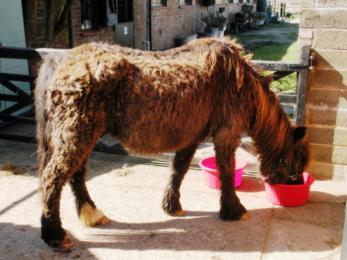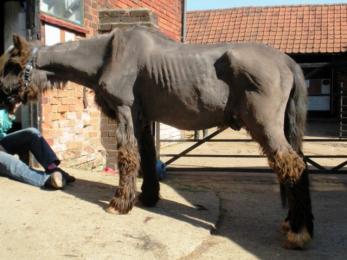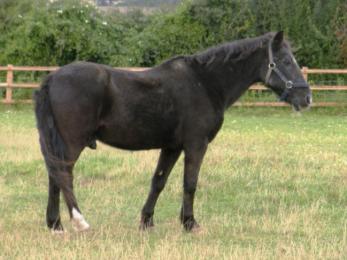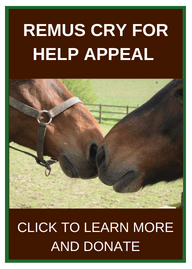


Laminitis Alert for Horse Owners
Remus Memorial Horse Sanctuary is warning horse owners to be aware that the rise of sugars in pastureland at this time of year causes a rise in glucose, potentially exacerbating any insulin-related issues in equines and thereby increasing the risk of Laminitis. Laminitis is a common, painful and ultimately devastating condition affecting the feet and hooves of horses and ponies.
The warning comes as the results of the National Equine Health Survey are released; finding that 7.15 percent of horses had suffered a bout of Laminitis in the previous year, with 43 percent of them recorded as first episodes. This contrasts with the 2013 survey data, which showed that 4.4 percent had suffered Laminitis, with 25 percent listed as first occurrences.
Remus Memorial Horse Sanctuary is recognised as one of the leading equine authorities on the treatment and cure of Laminitis, following its research and meticulous management strategy carried out over the past two years.
An underlying hormonal disease will cause up to 90% of cases of Laminitis and the two most common hormone, or endocrine, disorders of horses and ponies, are Cushing’s disease (now known as pituitary pars intermedia dysfunction or PPID for short) and equine metabolic syndrome (EMS).
As a result of determining that EMS was the cause of Laminitis at the Sanctuary, the team was able to treat the problem with medication, using a drug similar to that given to people diagnosed with Type 2 Diabetes, and sound management practice and have now virtually eradicated the incidents of Laminitis on the yard.
Sue Burton, founder of Remus Horse Sanctuary in 1983, and instigator of the studies alongside Liphook Equine Hospital and Boehringer Ingelheim, said, “Its worrying that Laminitis is shown as such an issue in the National Equine Health Survey. It’s very important that horse owners test to establish whether there is an endocrine disease causing the Laminitis, ie, PPID or EMS. By establishing this, the incidents of Laminitis can be reduced, giving the animal a better quality of life.”
Horse owners can visit www.talkaboutlaminitis.co.uk – a national disease awareness initiative provided by Boehringer Ingelheim Vetmedica – for more information. Until the end of October 2014, a voucher is available for free Cushing’s laboratory tests.
“Our animals’ comfort and wellbeing is vital at the Sanctuary,” says Sue. “The support we practice includes holistic treatments, stress management, and we are a no sugar yard, so that means no treats such as carrots or apples and no molasses. The horses with EMS, specifically, are taken off grass so that we can control what they eat, until the problem is controlled, and then they can be returned to pasture. We will be discussing all of these issues at our elderly horse seminar in November.”
Pictures of Scoobie on arrival / after clipping / healthy today.










